Our client contract covers everything from initial development and injection-moulded tool construction to production-ready prototypes and on to series production – if required, this can even include custom packaging and labelling of individual products, ready for sale. Using cutting-edge injection-moulding technologies, which cover both manual small-scale series production and fully automated production cells with robotic handling for unit volumes in the millions, we can achieve maximum flexibility for a wide range of client requirements.
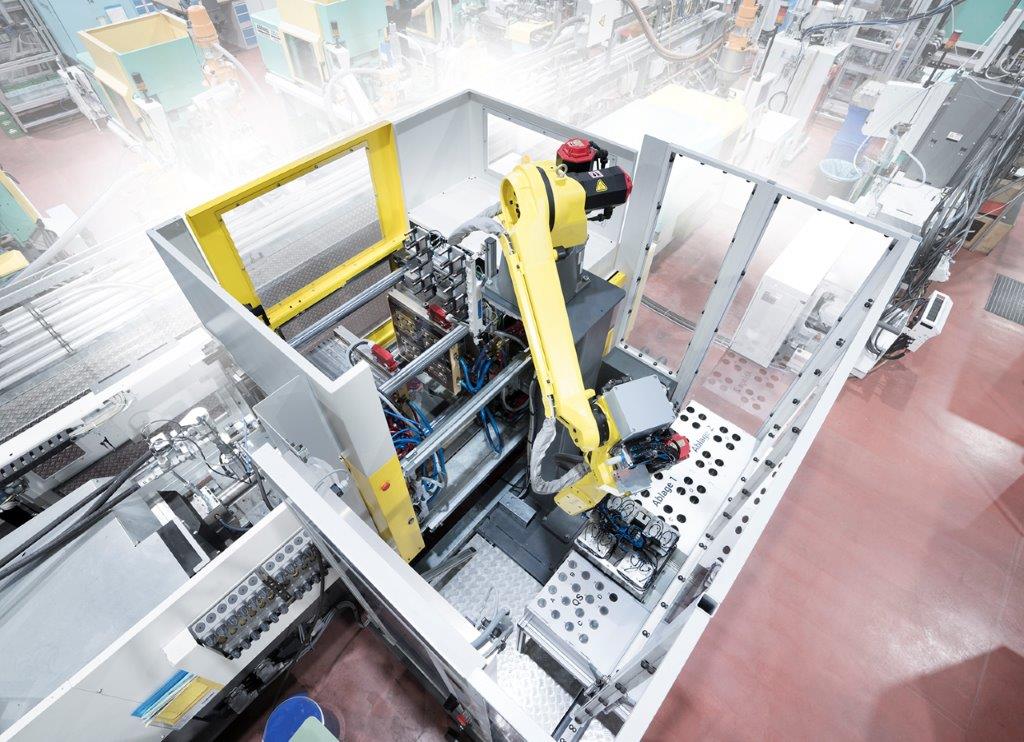

Unlike the thermoplastic injection moulding process, liquid silicone processing uses two components. These are injected into a high temperature tool by means of precise mixing. There is a whole host of benefits to using liquid silicones (LSR) – besides offering high elasticity and short cycle times from catalysts, silicone most importantly makes it possible to produce complex component shapes, which can only be achieved with large undercuts. It is also possible to dose very small shot weights using liquid silicones. Its neutral smell and taste and its high resistance to chemicals and environmental influences makes silicone a particularly popular material, especially in the medical field and the food industry.
Technical parameters
Material properties
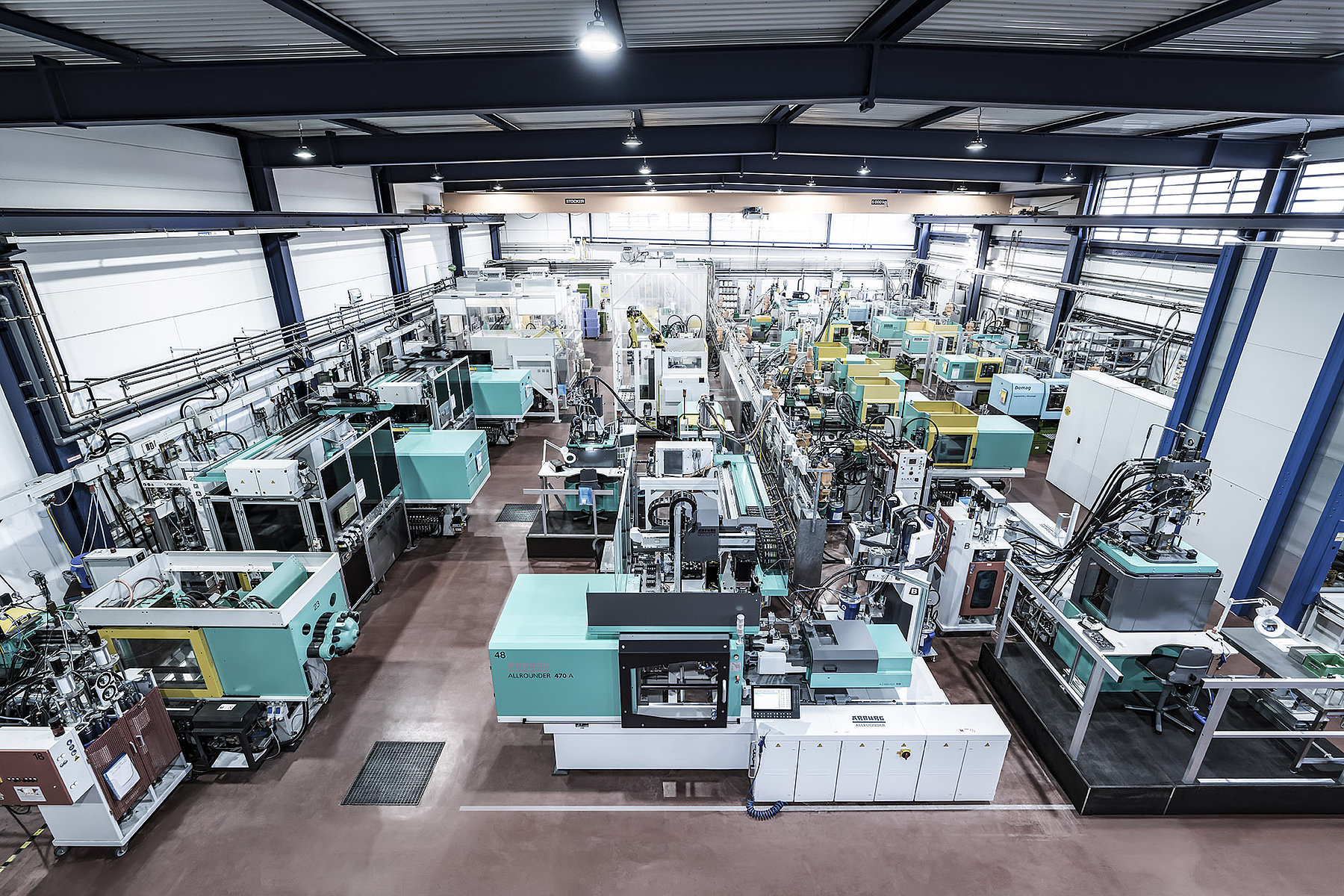
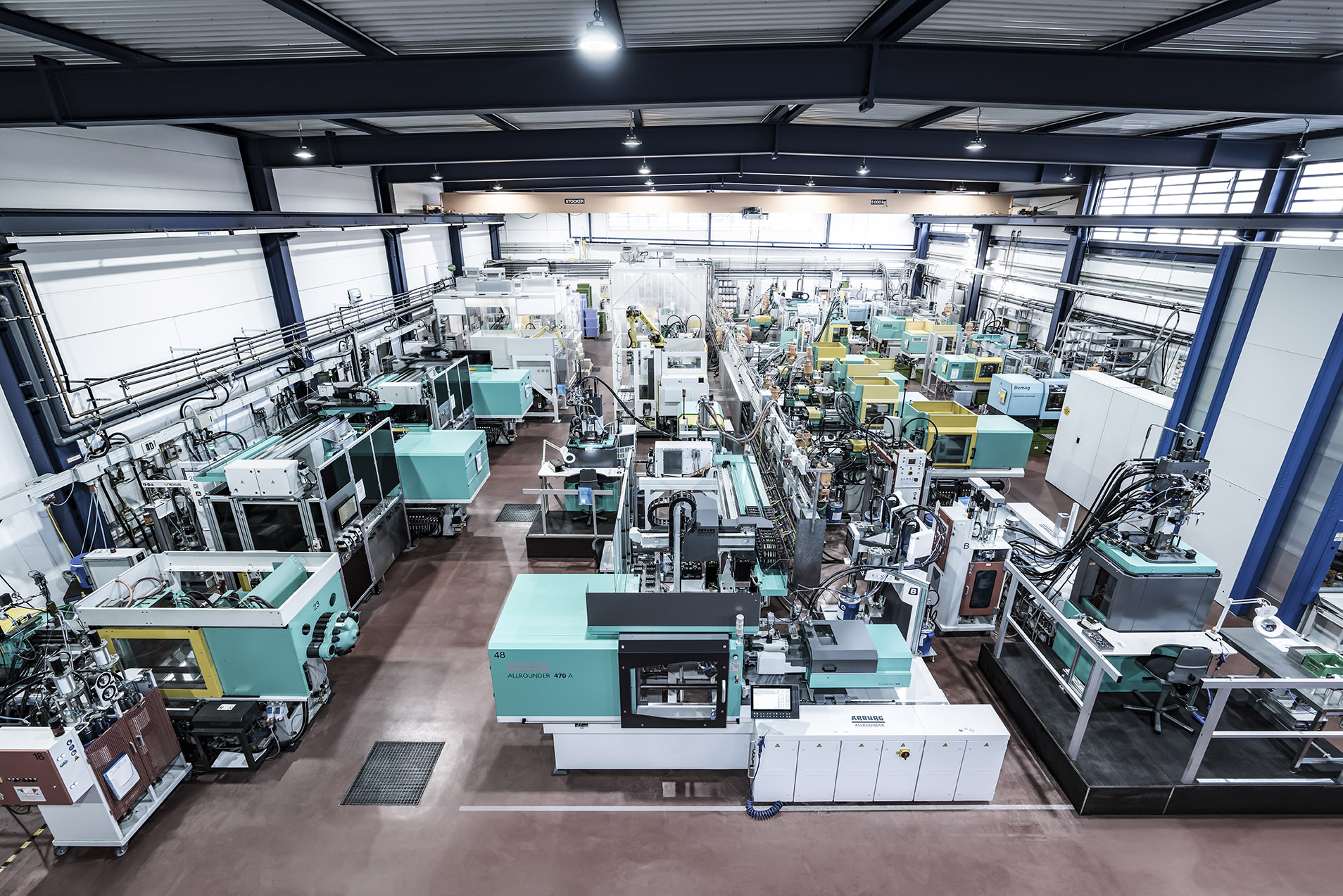
The thermoplastic injection moulding process melts the granulate and, using the appropriate injection pressure, injects it into a cooled tool. Thermoplastics have the advantage that they bind particularly well with multi-component parts. Our product portfolio incorporates a wide spectrum, from purely technical components to transparent visible components with high-quality surfaces (e.g. spectacle frame temples). A fleet of modern machinery with semi- and fully automated systems, central material supply, hot runner tools, automated removal processes and an experienced team of injection moulding specialists are ready to meet your needs.
Technical parameters
Material properties
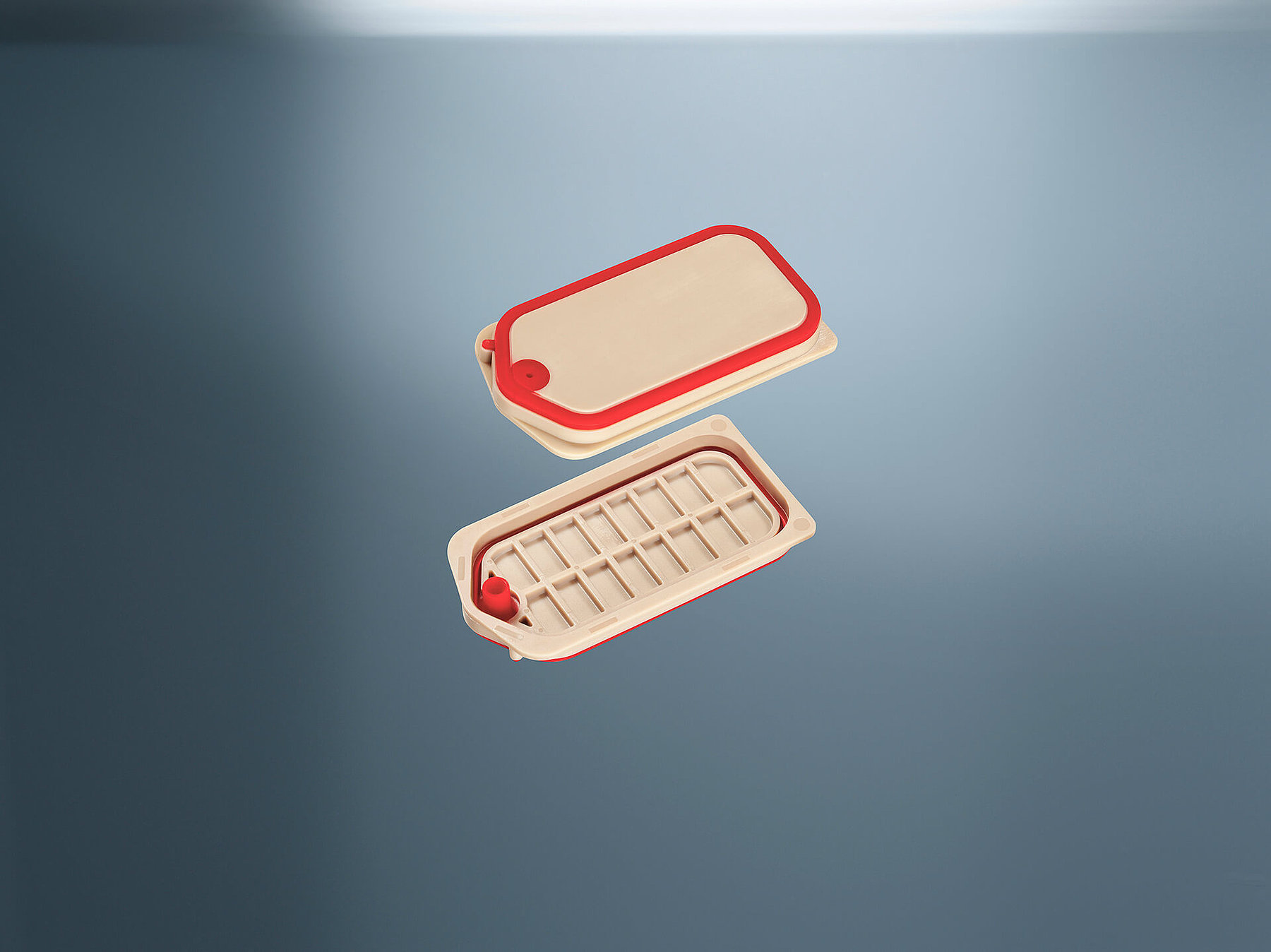
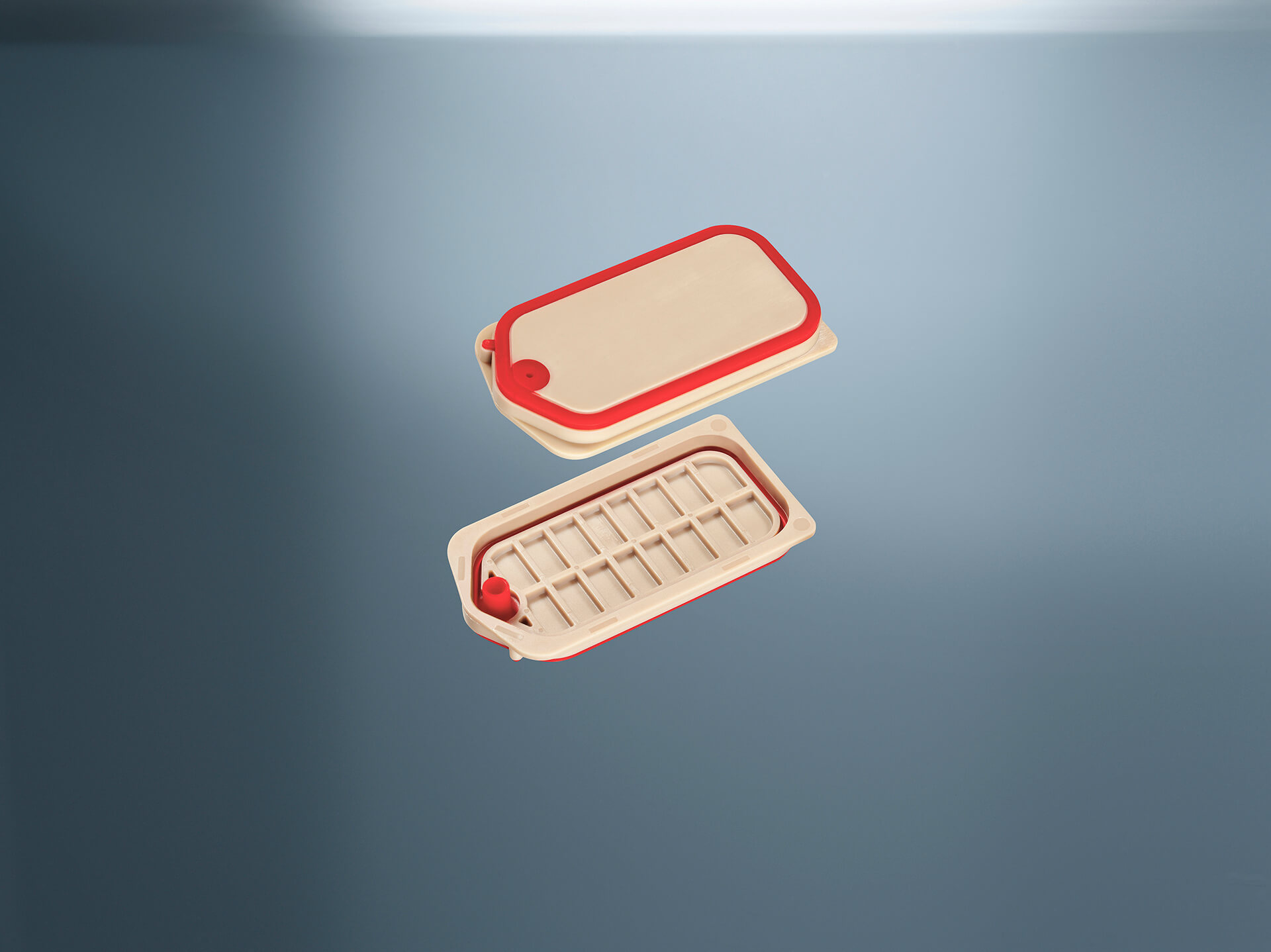
In 2K injection moulding technology, a pre-moulded part, made of either silicone or thermoplastic, is overmoulded with liquid silicone. In addition to this, a metal component can also be overmoulded with silicone. Depending on the number of units, the pre-moulded parts are placed precisely in the tool moulds, either manually or fully automatically using the handling systems. We have dedicated more than 20 years to this process, and we have regularly pushed the boundaries of what was previously considered technically possible. By producing all the thermoplastic support components ourselves, we can ensure both composite parts fit together perfectly for an ultra-efficient process.
Technical parameters
Experience in material pairings
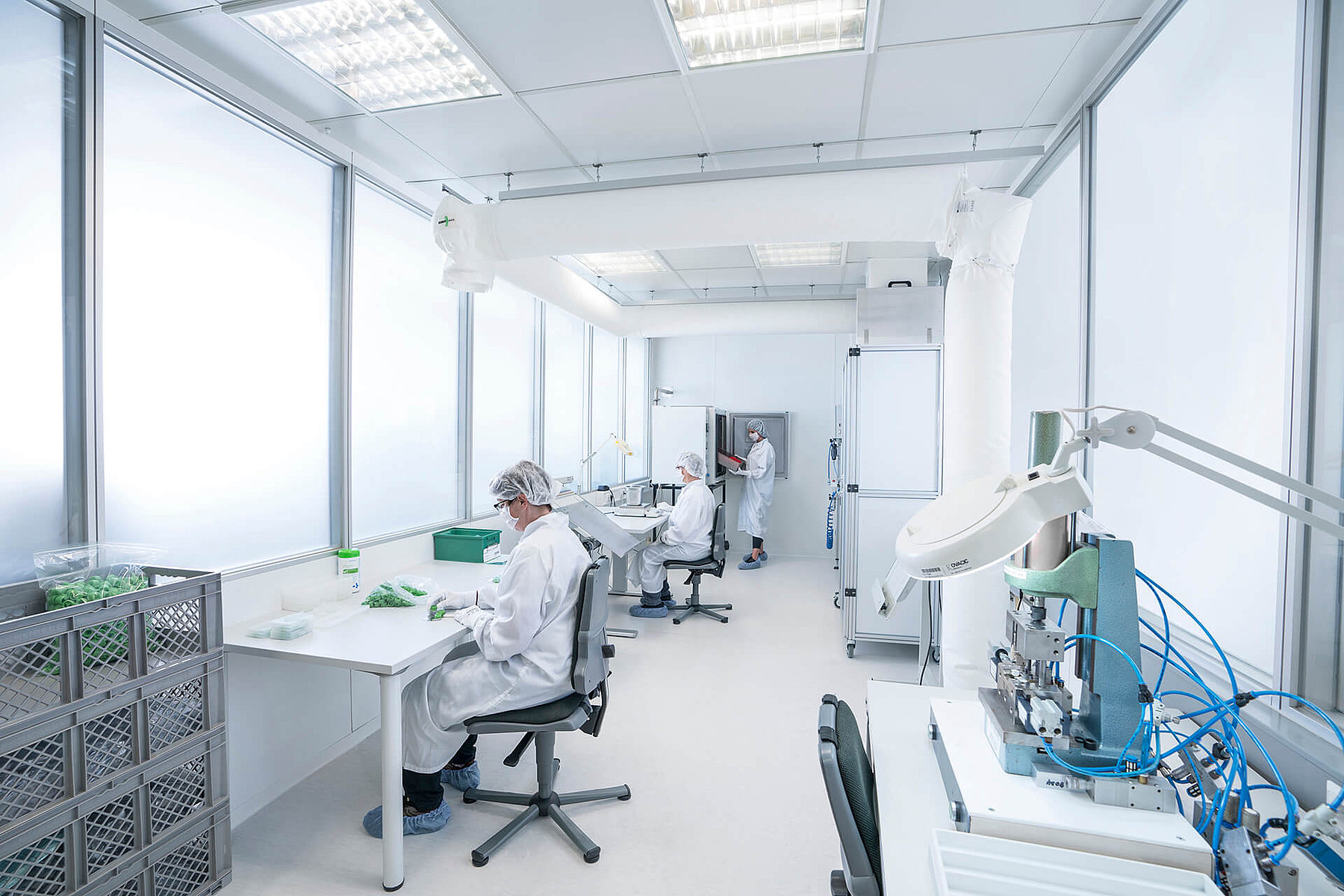
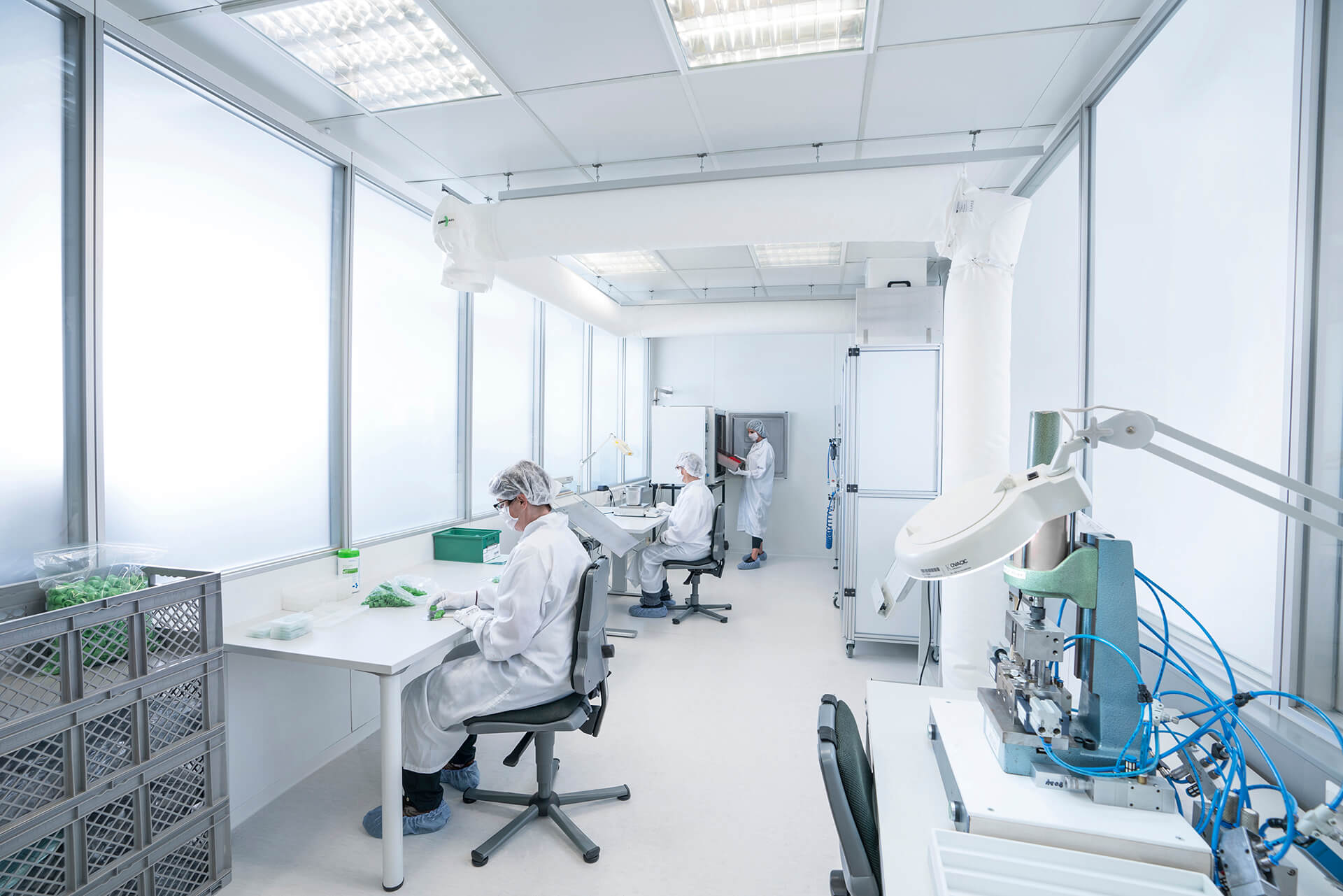
Particularly in sensitive fields of work, such as medicine, stringent requirements in hygiene and cleanliness must be fulfilled. Our infrastructure for cleanroom production enables us to produce the entire value chain in Class 8 conditions as per DIN ISO 14644-1. By means of continuous monitoring, we ensure that the prescribed air quality is maintained at all times in the cleanroom. That way, we can produce your required product in cleanroom conditions and ready to dispatch, guaranteeing the highest standards of cleanliness and quality.
Technical parameters
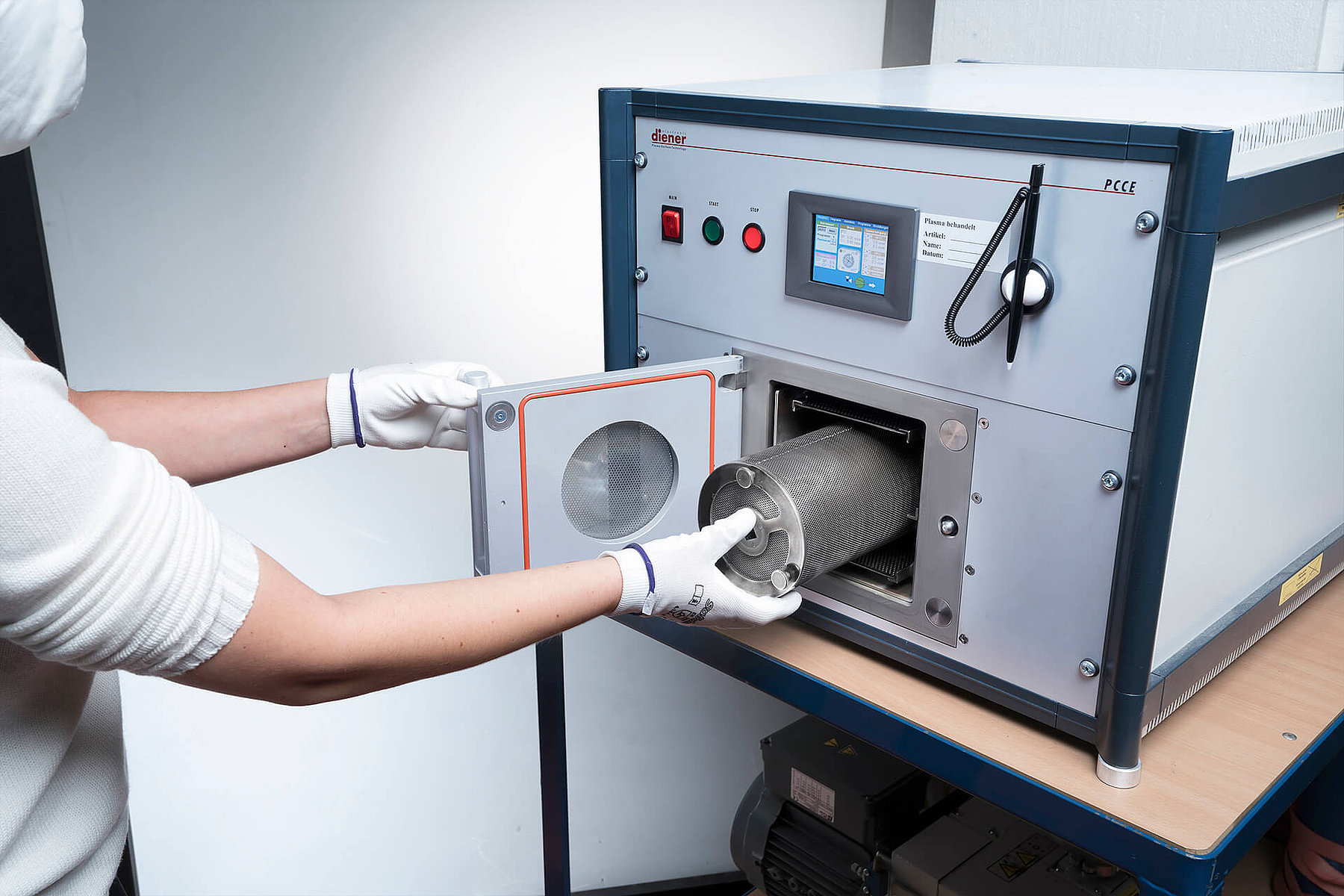
Metal production
Our in-house metal production incorporates the manufacturing technologies of soldering, bending and punching. As well as manufacturing purely metal parts for the optical industry (spectacle frame temples/pad arms), we also produce inserts to high quality requirements for further processing in-house.
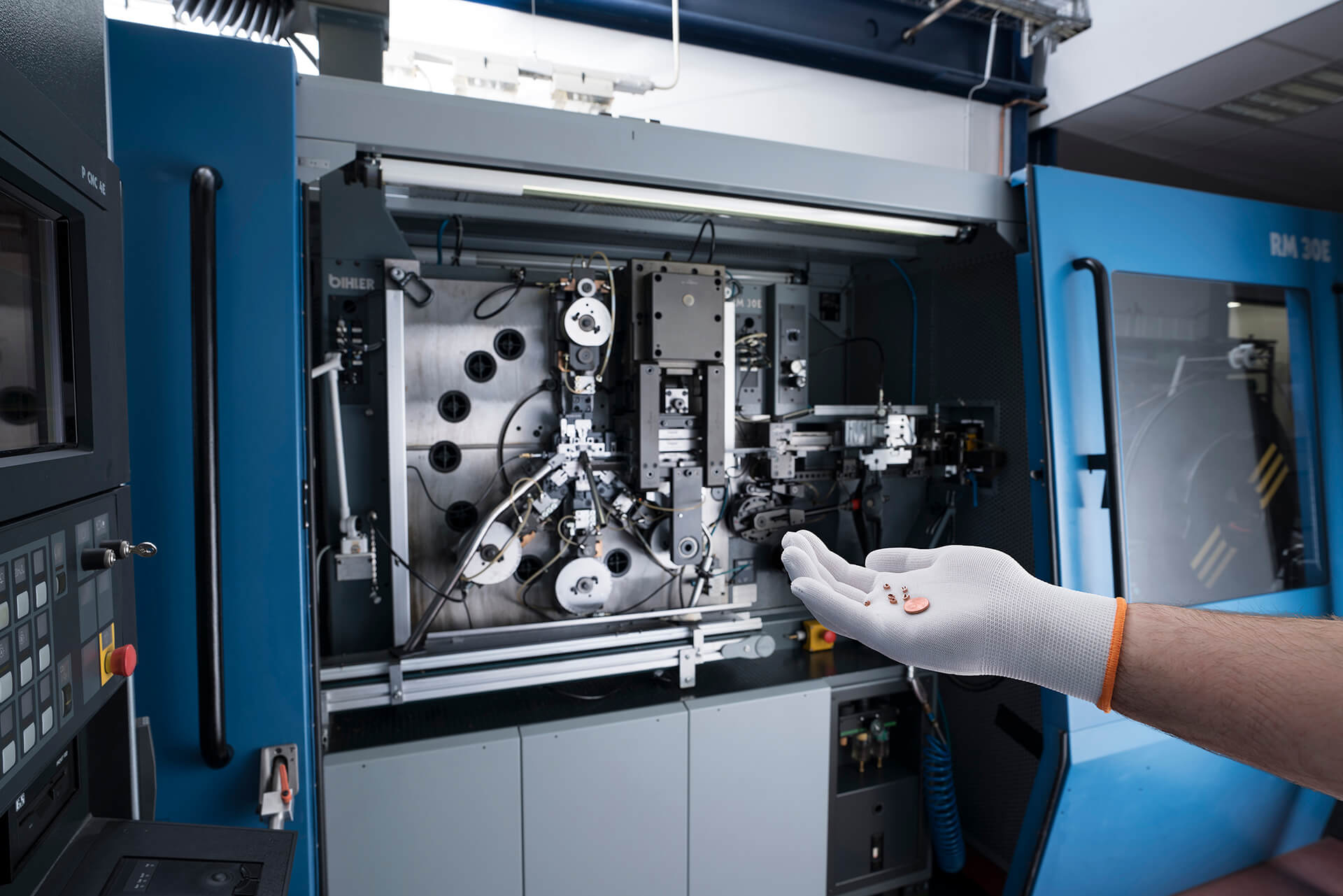
Tempering
The tempering process involves heat treating cross-linked silicone components once the actual moulding process has already taken place. Tempering is designed to complete the final cross-linking of silicone components so as to gain the maximum benefit of the material's physical properties and to degas the last remaining volatile components and by-products.
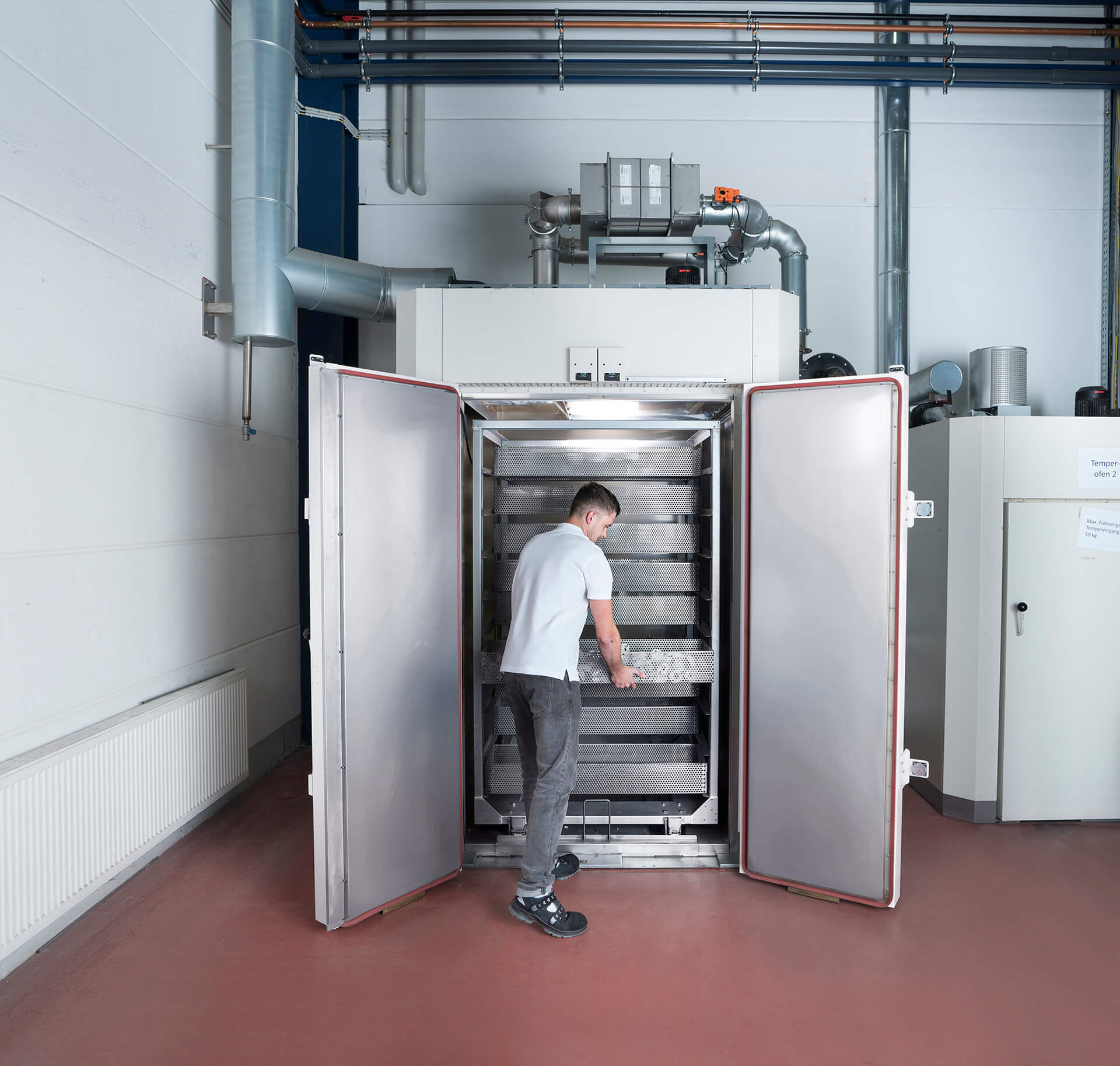
Ultrasonic welding
Ultrasonic welding is a bonding technology whereby the material is purposefully melted open using ultrasonic vibrations and bonded by either interlocking or by thermal reaction. This process does not require any additional materials such as adhesives and has the advantage of short cycle times, since it removes the need for any costly processes such as pre-treatment or drying. Using ultrasonic welding, we can guarantee your product is of the finest quality and it can be reproduced exactly.
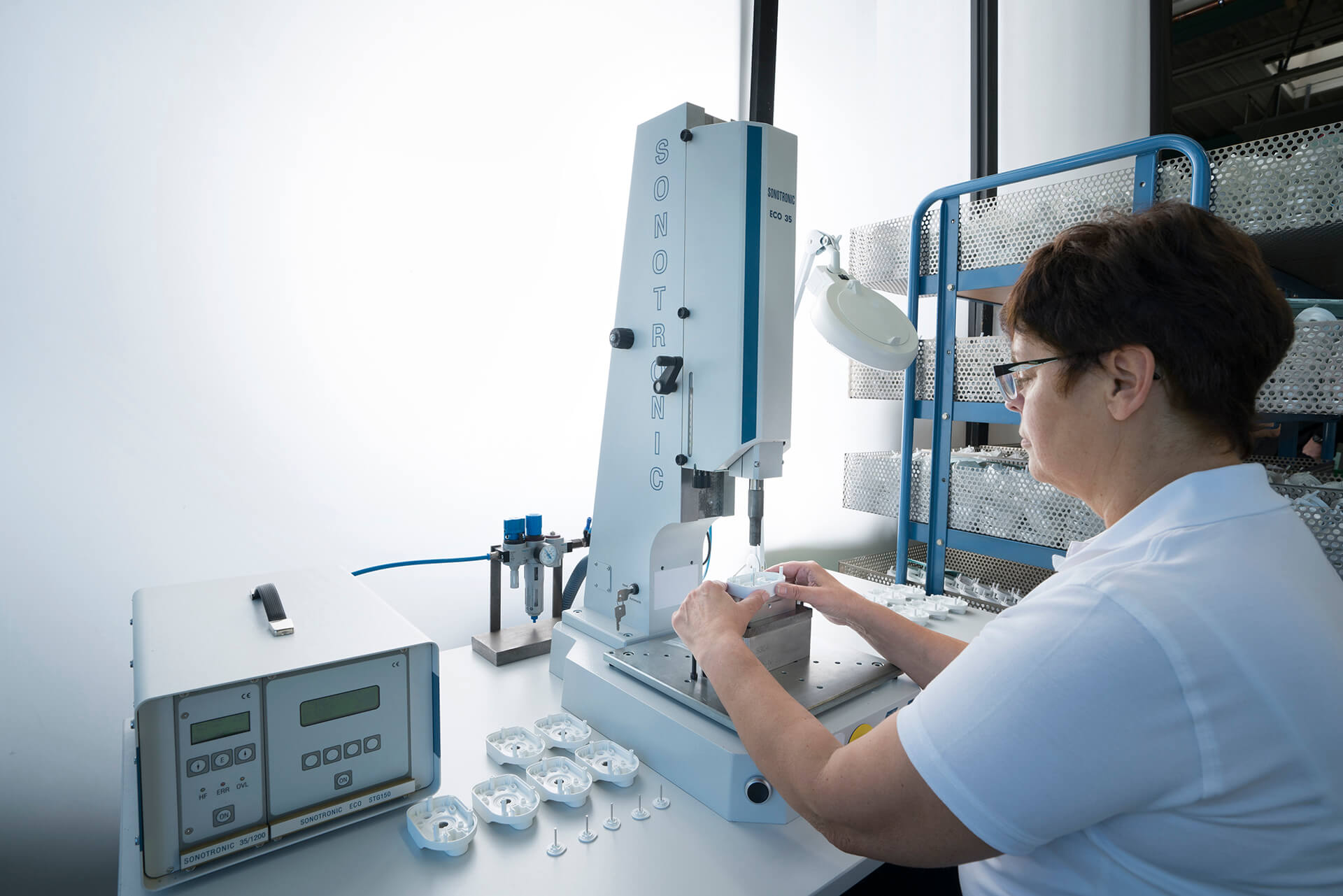
Laser marking
Our laser marking system applies clear product ID numbers (Unique Device Identification or UDI) to medical products. In the field of medical engineering, there is an ever-growing need to ensure products can be easily traced. With our laser marking technology, we ensure that the UDI code is still clear and completely legible even at a later stage.
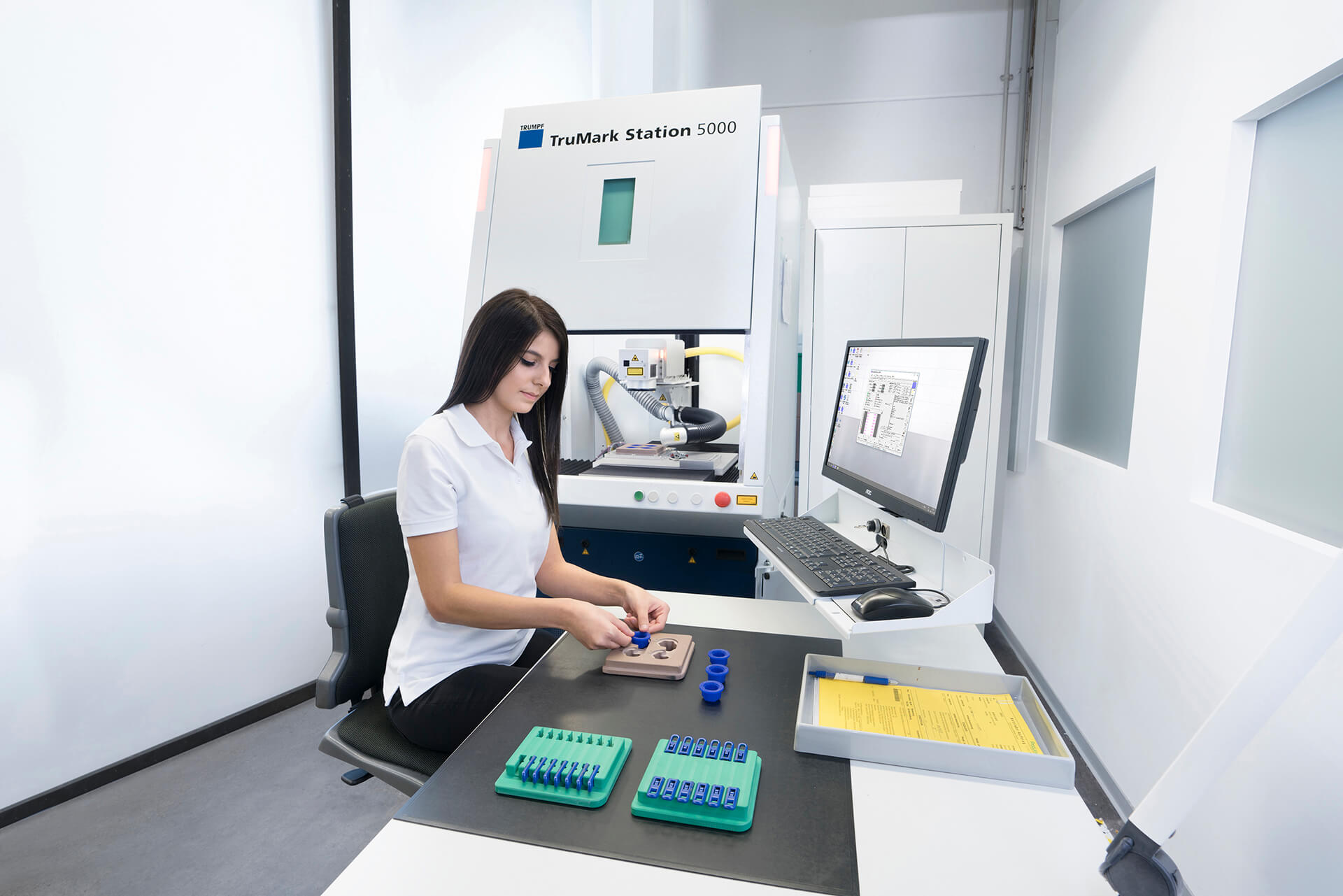
Assembly services upon request from client
Do you want your product integrated into an assembly? We are happy to offer customised assembly of individual components to produce installation-ready assemblies.
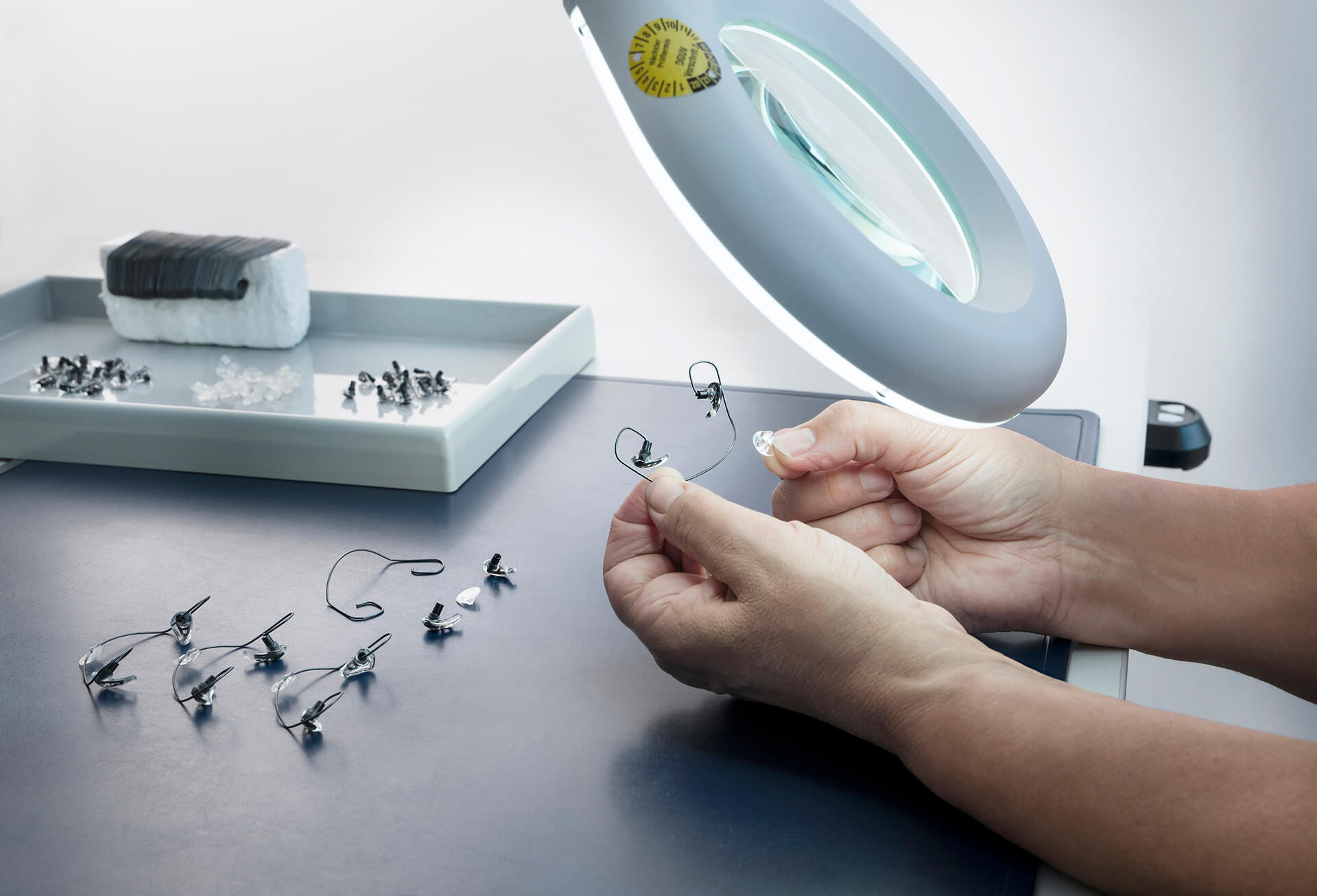
Packaging
We can also pack and label individual products so that your product stands out at its eventual point of sale. Thanks to our blister packing equipment, we are able to package large quantities quickly and efficiently.
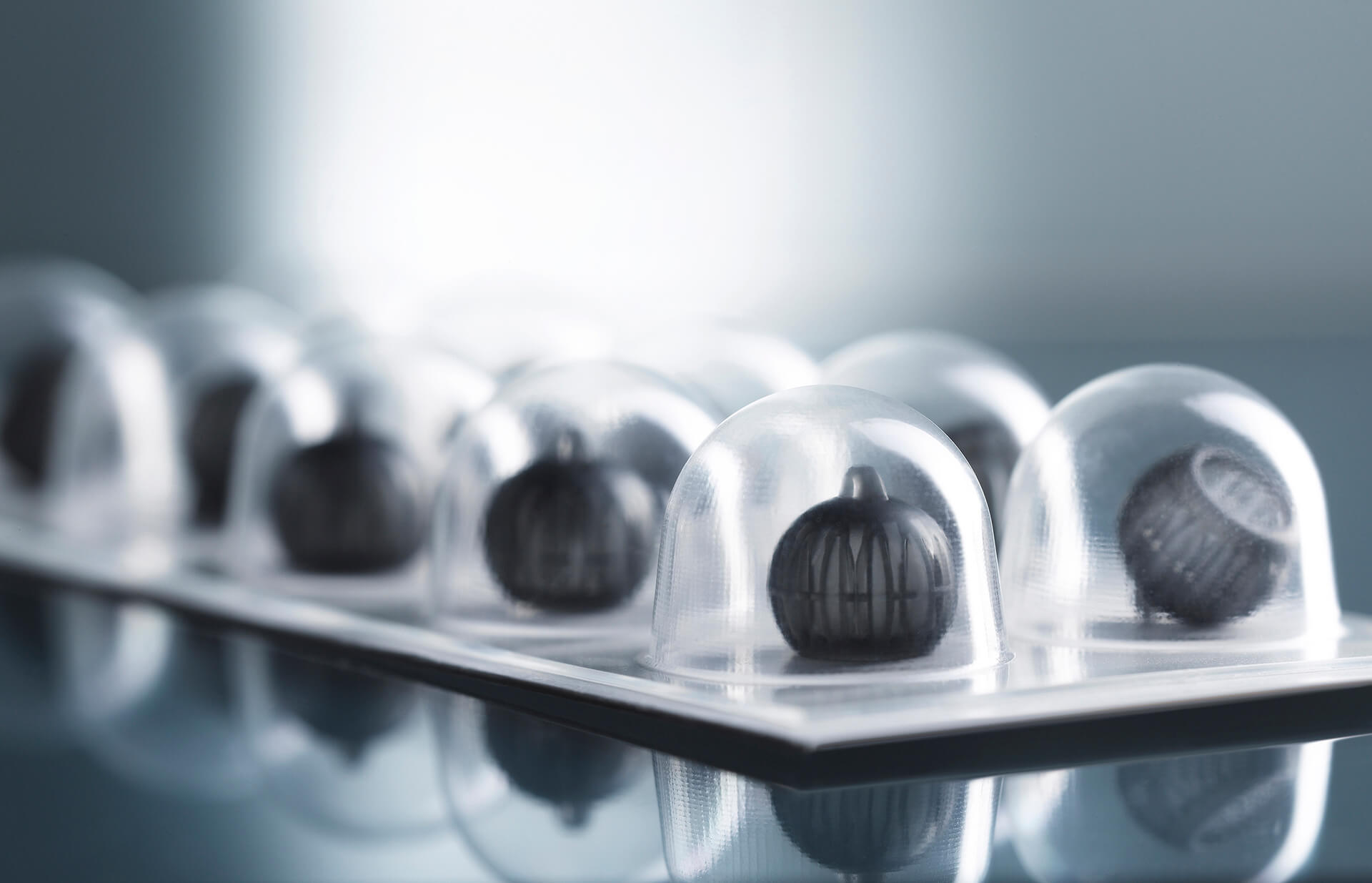
With everything from initial development and tool construction to production-ready prototypes and on to series production covered in the client contract – if required, this can even include custom packaging and labelling of individual products, ready for sale – Frey & Winkler really does offer a full service.